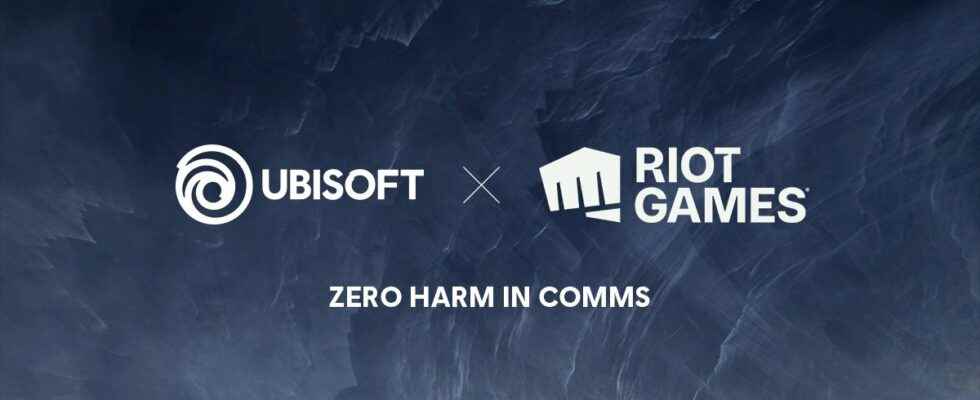It’s no secret. If the main objective of online games is to bring together the largest and most diversified community possible, it happens that this wish also opens the door to a more or less significant part of players with questionable behavior. Insults, threats, misogyny, racism…, despite the implementation of various tools to combat this toxicity, discussing via text or voice chats is unfortunately not without risk.
In order to more effectively combat this problem that has already existed for far too many years, Ubisoft and Riot Games, two companies that have several titles focused on a multiplayer experience (Rainbow Six Siege, League of Legends, Valorant…), have decided to partner through Zero Harm in Comms, “a new research project aimed at making online video game chat rooms safer. »
Goal: Create an AI that tracks and analyzes online toxicity
Led by Yves Jacquier, executive director of the Ubisoft La Forge R&D department, and Wesley Kerr, head of technological research at Riot Games for about six months, Zero Harm in Comms is, originally, “an anonymized, shared database used to train Ubisoft and Riot systems to detect and mitigate disruptive behavior. »
More concretely, the goal is to learn to an AI to identify as many harmful scenarios as possible and to catalog them efficiently thanks to the database mentioned above.
As the member of the French company explains, “there are keywords that can be immediately identified as ‘bad’. However, it is often much more difficult to analyze their meaning. For example, if you see the phrase “I’m going to take you out” in a chat, what does that mean? […] If you’re playing a competitive shooter, that might not be an issue, but if it’s another type of game, the context might be totally different. »
Aware that the project is still in its infancy, Yves Jacquier and Wesley Kerr specified in the press release available on the official Ubisoft website that the first results of their research will be shared with the entire video game industry next year. In addition, they hope that other publishers will join them after they too realize that the current tools put in place to fight against this toxicity in online chats are now insufficient.
Note also that in conclusion, the representative of the tricolor firm does not hesitate to declare this: “It’s 2022. Everyone is online and everyone should feel safe, period. » It remains to be seen whether or not Zero Harm in Comms will succeed in truly changing things in this area. To be continued.
